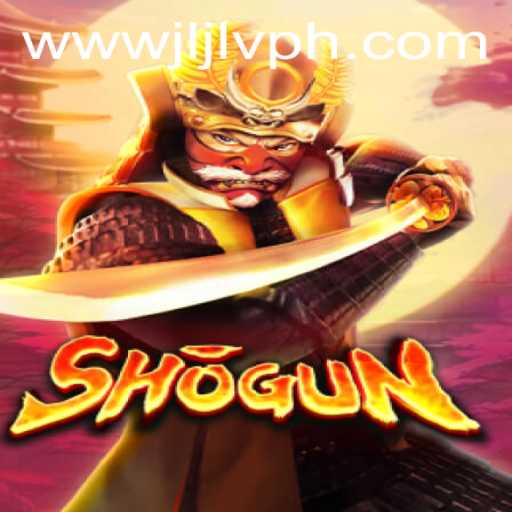The Strategic Depths of Shogun: A Cultural and Gaming Phenomenon
Shogun is not just another board game; it is a journey through time and strategy. Bringing to life the vibrant era of Feudal Japan, this game offers a deeply immersive experience that combines historical elements with strategic gameplay. Inspired by the tales of shoguns and samurais, Shogun allows players to dive into the complexities of warfare, diplomacy, and economy, making it a compelling choice for enthusiasts of this genre.
An Introduction to Shogun
Originating from the rich tradition of strategy games, Shogun captures the essence of tactical decision-making in an era dominated by clans vying for power in Japan. The game takes inspiration from real historical figures and the political dynamics of the time, offering an engaging narrative that forces players to think critically about each move they make.
The main objective of Shogun is to control territories and gain prestige, balancing the needs of large armies with the management of resources. This delicate balance demands foresight and planning, making every game session unique and challenging.
Gameplay and Mechanics
Shogun's gameplay is meticulously designed to reflect the strategic complexities of being a titular military commander. Each player takes the role of a daimyo (a powerful Japanese feudal lord) competing to expand their influence across the island nation. The game board is a detailed map of Japan, divided into provinces, each offering distinct advantages and challenges.
Players issue orders through a cleverly hidden card system, allowing for a dynamic and unpredictable flow of actions. This mechanism not only tests a player’s strategic acumen but also their psychological insights into their opponents’ potential moves. The orders encompass expanding armies, constructing castles, harvesting rice, and running strategic military campaigns.
Combat Mechanics
Combat in Shogun is resolved through a unique tower mechanism. Players drop combat units into a tower that sorts and dispenses the pieces in a semi-random fashion. This adds a layer of suspense to military encounters, ensuring that even well-laid plans can face unpredictable twists.
The tower determines the outcomes based on both luck and the strength of the armies placed inside it. Such a mechanic keeps the tension high and the results thrillingly uncertain, necessitating the skillful planning of troop allocations.
Seasons and Events
The game is played over two years, each divided into four seasons, reflecting the cyclical nature of agriculture and military campaigns. Summer allows players to grow resources, while winter demands that they manage their food effectively to avoid revolts. Autumn and Spring bring unique events and opportunities that require players to adapt their strategies accordingly.
Rules and Strategic Depth
Shogun's rules are intuitive yet deep, appealing to both beginners and seasoned players. Each turn presents decisions that mirror the intricate art of war, such as choosing when to engage in battles or when to invest in public welfare.
Beginning the Game
At the start, players receive their initial territories and resources. Starting positions often require strategic adjustments, compelling players to plan carefully from the outset. The initial setup involves allocating units and creating a forward-looking strategy that aligns with personal playstyle and the ever-changing landscape of the game.
Resource Management
Effective resource management is at the core of successful gameplay in Shogun. Players must collect and use rice, gold, and troops judiciously. Rice ensures the survival and contentment of the populace, while gold funds the various initiatives that can swing the tide in one’s favor.
Philosophy and Strategy
While the game’s rules are well-defined, Shogun truly shines in the open-ended nature of its strategy. Players must embody the foresight of a military leader, interpreting various possible outcomes and adjusting tactics dynamically. Anticipating the actions of opponents is as crucial as planning one’s own.
Current Events and Cultural Impact
As modern board gaming communities rapidly evolve, Shogun maintains its status as a classic due to its thematic richness and strategic depth. In recent years, there has been a renewed interest in games that offer a deep historical or cultural experience, invigorating conversations around titles like Shogun.
The game offers an educational lens to understand not just mechanics but also a culture that has fascinated people worldwide. Amidst global events that highlight cultural exchanges and rediscoveries, Shogun embodies the fusion of entertainment and learning, making history accessible and engaging.
With the growing popularity of online board game platforms, Shogun's reach has expanded further, allowing players to connect and engage with others across the globe. This cultural exchange has led to greater appreciation and discourse about the nuances of historical strategy games, expanding Shogun's community and player base.
Furthermore, the integration of historical strategy games in educational formats is a testament to the evolving recognition of their value beyond mere recreation. The strategic rigor and historical context of Shogun make it a valuable tool for discussing broader themes of leadership, conflict resolution, and cultural dynamics.
Concluding Insights
For those seeking a game that goes beyond entertainment, Shogun offers a compelling look at the past through the lens of strategy. Its blend of historical narrative, strategic depth, and dynamic gameplay ensures it remains a fixture in board gaming collections around the world.
Whether you are a seasoned strategist or new to the world of board gaming, Shogun invites you to test your mettle and explore the fascinating tapestry of Feudal Japan. With its blend of elements and strategic choices, it offers a rich and nuanced experience that continually challenges and captivates players.








